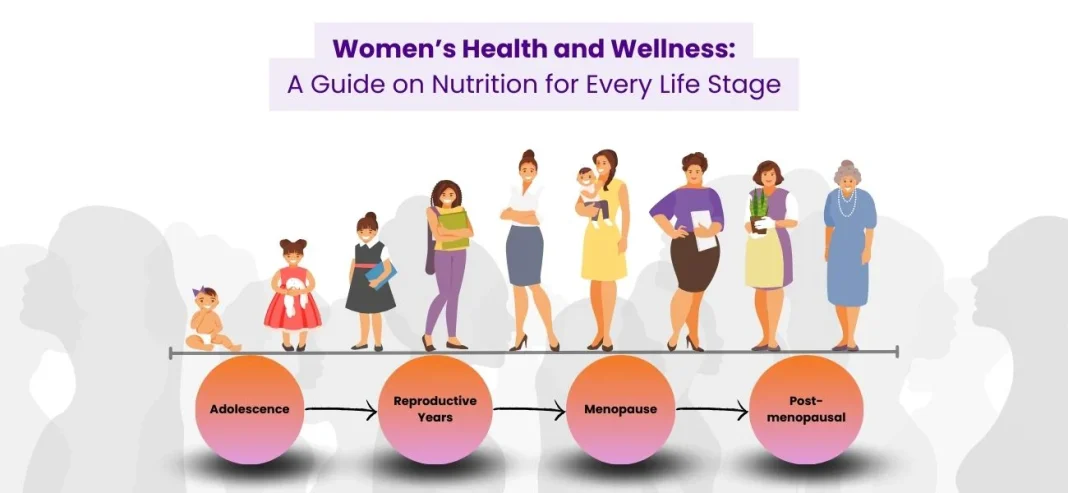Women’s health is a topic that extends far beyond reproductive issues. It’s about nurturing the whole woman—body, mind, and soul—through all the stages of life. From adolescence to post-menopause, each phase presents unique challenges and opportunities for growth, self-care, and empowerment.
Unfortunately, in many cultures, women are often the caregivers—the ones who put others first. In the process, their own health can take a backseat. But prioritizing women’s health isn’t selfish—it’s essential. When women are healthy, families thrive, communities flourish, and generations benefit.
Understanding Women’s Unique Health Needs
Women’s bodies are biologically different from men’s in many ways, and these differences require specific care and attention. Here are a few critical areas of focus:
1. Reproductive and Hormonal Health
From menstruation and fertility to pregnancy, childbirth, and menopause, a woman’s reproductive system plays a central role in her health journey.
Menstrual Health: Irregular, painful, or heavy periods may indicate underlying issues such as polycystic ovary syndrome (PCOS), endometriosis, or thyroid disorders. Regular gynecological checkups help monitor and manage these conditions.
Fertility: Whether you’re planning to have children or not, understanding your fertility is empowering. Advances in fertility awareness, birth control, and reproductive technologies give women more control over their choices.
Menopause: This natural transition can bring symptoms like hot flashes, sleep disturbances, and mood swings. Hormonal changes also affect bone density and heart health. Support and treatment options are available—no woman should suffer in silence.
2. Breast Health
Breast cancer is one of the most common cancers among women. Regular self-exams, annual mammograms (as recommended), and awareness of family history are vital for early detection.
3. Heart Health
Heart disease is the leading cause of death in women, often presenting with different symptoms than in men—such as fatigue, shortness of breath, and nausea. A healthy lifestyle, regular screenings, and managing stress can significantly lower the risk.
Mental and Emotional Health
Mental health is a critical yet often overlooked part of women’s wellness. Women are more likely than men to experience anxiety, depression, and postpartum mood disorders.
Hormonal Fluctuations: PMS, pregnancy, and menopause can all affect mood and emotional balance.
Life Pressures: Juggling work, family, and societal expectations can lead to burnout and anxiety.
Support Matters: Therapy, support groups, and honest conversations can help women navigate emotional challenges and feel less alone.
Healthy Habits for Life
No matter your age, taking care of yourself is a lifelong journey. Here are some core habits that support women’s health:
Eat a Balanced Diet: Nutrient-rich foods like leafy greens, lean proteins, whole grains, and healthy fats support hormonal balance, energy, and long-term health.
Exercise Regularly: Aim for a mix of cardio, strength training, and flexibility exercises. Even walking daily can improve mood, heart health, and bone strength.
Get Regular Checkups: Routine health screenings, including pelvic exams, cholesterol checks, and blood pressure monitoring, can catch problems early.
Practice Self-Care: Whether it’s journaling, meditation, a hobby, or simply saying no to overcommitment, self-care helps manage stress and boost overall well-being.
Empowering Women Through Knowledge
Health education empowers women to make informed decisions about their bodies. Breaking down stigmas around menstruation, menopause, sexual health, and mental well-being creates a culture where women feel heard and respected.
Conclusion
Women’s health is not just a medical issue—it’s a societal priority. Every woman deserves access to the care, knowledge, and support she needs to live a full, healthy life. By listening to our bodies, seeking support when needed, and embracing wellness as a form of strength, we redefine what it means to be truly healthy.
Because when women thrive, the world becomes a better place.













